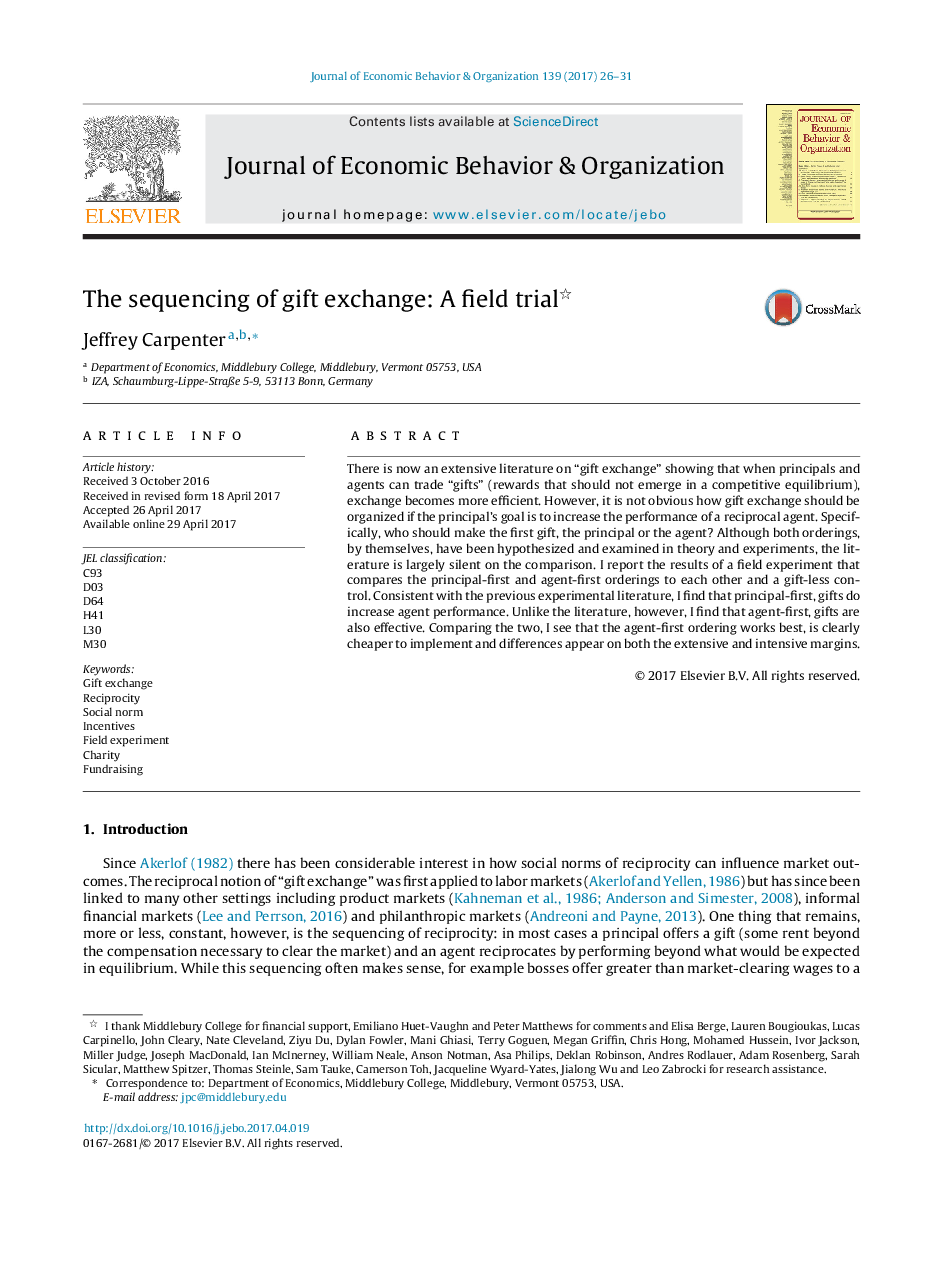| Article ID | Journal | Published Year | Pages | File Type |
|---|---|---|---|---|
| 5034516 | Journal of Economic Behavior & Organization | 2017 | 6 Pages |
Abstract
There is now an extensive literature on “gift exchange” showing that when principals and agents can trade “gifts” (rewards that should not emerge in a competitive equilibrium), exchange becomes more efficient. However, it is not obvious how gift exchange should be organized if the principal's goal is to increase the performance of a reciprocal agent. Specifically, who should make the first gift, the principal or the agent? Although both orderings, by themselves, have been hypothesized and examined in theory and experiments, the literature is largely silent on the comparison. I report the results of a field experiment that compares the principal-first and agent-first orderings to each other and a gift-less control. Consistent with the previous experimental literature, I find that principal-first, gifts do increase agent performance. Unlike the literature, however, I find that agent-first, gifts are also effective. Comparing the two, I see that the agent-first ordering works best, is clearly cheaper to implement and differences appear on both the extensive and intensive margins.
Keywords
Related Topics
Social Sciences and Humanities
Economics, Econometrics and Finance
Economics and Econometrics
Authors
Jeffrey Carpenter,
